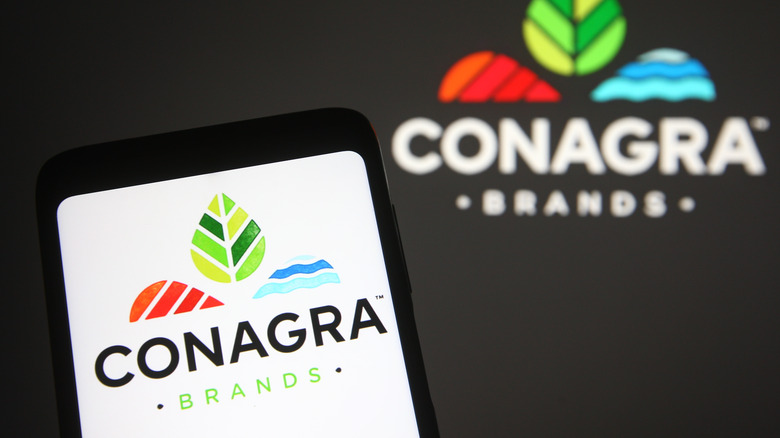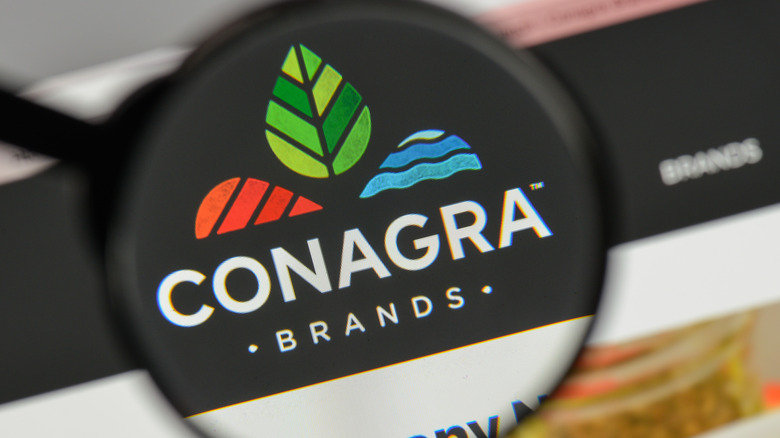Why Conagra Was Hit With An Unexpectedly Bad Quarter
When you walk into your local grocery store, the question of whether you're going to encounter a Conagra product isn't a matter of "if" but "when." Conagra's portfolio of brands dominates supermarket aisles. Its long list of household names includes Slim Jim, Duncan Hines, Hunt's, Earth Balance, Marie Callender's, Reddi Whip, Birds Eye, Vlassic, Jiffy Pop, Banquet, Bertolli, Gardein, Chef Boyardee, Libby's, Blue Bonnet, and many others.
It's been a big year for supermarket giants. Last month, Kellogg's announced that it would be dividing itself into three separate organizations via a press release. The Campbell Soup Company was kept afloat not by its cozy soups but by its salty snacks like Goldfish Crackers and Cape Cod chips. This year, Conagra started quarter one strong. After raising prices at the beginning of 2022, company-wide sales rose to $2.9 billion from the previous year's $2.7 billion, per Food Business News. (Conagra's frozen and snacks sectors reportedly led sales this year.) In quarter one, the company's adjusted net income enjoyed a 14% increase to $275 million. But, during its first quarter, the company restructured its Refrigerated and Frozen Foods sector, incurring a $386 million "goodwill and brand impairment charge," reports Food Business News. According to Investopedia, companies get impairment charges when they write off assets when they become invaluable or no longer serve them. But that's not the only thing that didn't go as planned.
Food safety setbacks
This stressful fee was compounded by several batches of "off-spec" products, says Sean M. Connolly, Conagra's president and CEO, via Food Business News. Per Connelly, the company immediately neutralized the threat, but the disruption caused a major setback, "We disposed of the product and lost manufacturing time during our diagnostic," Connolly reports. "This pulled sales and gross margin below where they should have been." The collateral fiscal effects, says Connolly, will significantly impact Conagra's second quarter.
While this setback is surely an obstacle for Conagra's Q2, it also serves as a laudable accolade of the company's ethics. Parents won't soon forget the nationwide baby food shortage that plagued U.S. households earlier this year. Baby food and formula production came to a screeching halt when germ Cronobacter sakazakii was found on the premises of Abbott Laboratories, leading to multiple infant fatalities, per CNBC. In a confidential disclosure, one anonymous former-employee whistleblower said that the outbreak was caused due to Abbott's negligence. The company was allegedly warned multiple times about the risks of improper tank maintenance before the epidemic. Conagra is setting the standard of behavior for other mass-scale food purveyors in many ways.
Looking forward, CFO David S. Marberger says Conagra will "continue to monitor inflation levels and price as needed to manage future volatility." But, ultimately, Connelly says the company wants to "solve the root cause of the issue as well as proper testing to ramp production back up."

